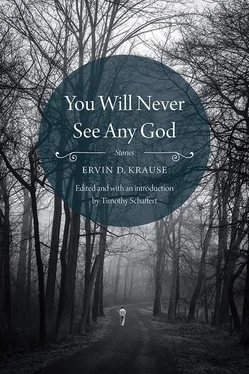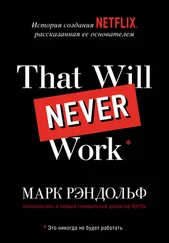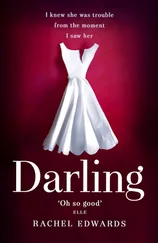Krause’s relationship with Prairie Schooner , and Shapiro’s mentorship, would rapidly advance Krause’s writing career, but it would also toss him into the center of controversy when his story “Anniversary” was declared “obscene” by the university’s dean of the College of Arts and Sciences — leading to an act of censorship that made national news.

As an editor, Shapiro showed a rigorous commitment to Krause’s work; “Anniversary” was to be the seventh story by Krause to appear in Prairie Schooner . The first, “Daphne,” was published in 1958. “The Quick and the Dead,” published in Prairie Schooner in 1960, was reprinted in Prize Stories 1961: The O. Henry Awards , along with stories by Tillie Olsen, Reynolds Price, Arthur Miller, Peter Taylor, and John Updike. In 1961 Shapiro promoted Krause’s work in a bold move: he featured three of Krause’s stories in the summer issue and boasted of it on the front cover with the same typographic fanfare he had previously allowed Walt Whitman and Henry Miller.
One of the three stories was “The Snake,” which went on to become widely reprinted over the next several years and earned Krause another appearance in the O. Henry Awards anthology (alongside fiction by Terry Southern, Jessamyn West, Joyce Carol Oates, and Ellen Douglas). Textbook editors have proven particularly partial to “The Snake”—the story, with its brevity and efficiency and its powerful examination of cruelty and punishment, lends itself well to instruction in craft and analysis. Metaphor, motif, theme, allusion, conflict, foreshadowing, imagery — students of writing and literature can take the back off the clock and see how the cogs all click together. What lends the story its authority, however, is a bit more difficult to define. At the heart of it is a small act of passion on an ordinary morning of routine farm work, one that will likely change the relationship between the two characters — a boy and his uncle — for the rest of their lives.
By the time Krause’s story “Anniversary” was accepted for a 1963 edition of Prairie Schooner , Krause had moved to Honolulu, having taking a teaching job at the University of Hawaii. He was now married — at the University of Nebraska he had met Loretta Loose, who had spent a fast-paced year in a new master’s program in theater, performing role after role in the campus playhouse. Ervin and Loretta were young artists in love; they were married in 1961.
In Hawaii Krause taught creative writing and continued to write fiction and poetry — but his characters remained, determinedly, in the Midwest. According to Loretta, Ervin recognized the importance of place to a young writer seeking to establish an original voice. He knew the land and the life of the Midwest too well to ever finish with it, and he knew that such knowledge gave his work a necessary edge of authenticity. His notebooks — currently housed with his papers in the archives of the University of Nebraska — Lincoln’s Love Library — are riddled with sketches of characters and places, many drawn from his childhood on the plains.
The censored story, “Anniversary,” is one of only a few of Krause’s stories to be set in an actual city — and it’s this specificity that might have provoked the anxiety of university administrators. In “Anniversary” a character named McDonald returns to Lincoln, Nebraska, over holiday break to visit Wanda, a woman with whom he’d had an affair during his master’s program in an unnamed English department. McDonald, now an assistant professor of English at the University of Missouri, is a bit of a prig in the making. He’s a womanizer (the narrator provides insight into his sexism when the story describes the “birdy” female graduate students McDonald dated as having “unsexed bodies like store-window dummies and faces like parakeet beaks”), generally insensitive (the “fairies” in the department, we’re told, had approached McDonald “in sly, nuzzling, knee-touching familiarity”), and largely misanthropic (in a single sentence businessmen are “bland-faced” and sergeants are “gross-faced”). But he’s lonely, and desperately so, and “Anniversary” is easily Krause’s most chilling story.
McDonald’s emptiness contrasted with Wanda’s sweet nature and vulnerability further demonstrates an exploration of cruelty and frailty that so motivated Krause — most notably in his story “The Snake.” McDonald is even a writer himself and publishes his work in literary journals.
“Why do you write about such dark and unhappy things?” Wanda asks. “You should take things more lightly.”
Ultimately, McDonald convinces himself that Wanda is as dead inside as he is, and after lovemaking he confronts her with a sociopath’s disgust. All along, Krause articulates McDonald’s mean spirit in dark prose worthy of Richard Yates.
The prose proved too dark for university administrators, or the sex was described too explicitly. It’s unclear what most offended. Different stories abound regarding the true impulse to censor and how the story came to cross the desk of a dean not typically involved in Prairie Schooner ’s editorial processes. But Dr. Walter Millitzer, dean of the university’s College of Arts and Sciences at the time, took official responsibility. Millitzer removed the story from galleys without Karl Shapiro’s knowledge. Shapiro then publicized his immediate resignation from his editorship of Prairie Schooner and his intention to leave the university. He also read “Anniversary” on a local radio station. “Anniversary,” however, has never been published until now.
In an article in the New York Times dated May 24, 1963, Millitzer is quoted as describing the story as “obscene and in poor taste.” Shapiro, in the same article, defends the story as simply one of “washed out love with a couple of bedroom scenes.” The headline of the article indicated Shapiro’s response to the controversy: “Shapiro Quits Nebraska U.; Cites ‘Editorial Tampering.’”
Krause wrote to Clifford Hardin, the university’s chancellor, from Hawaii a few days after the censorship of his short story made the New York Times and other newspapers across the country: “The university must stand with fierce pride and integrity against the forces of ignorance and prejudice and stupidity; the university must defend the right of the artist to speak. You have denied what a university must stand for.”

Krause courted controversy, addressing subjects such as infidelity, abortion, racism, homosexuality, abuse. The “censorship,” as he came to refer to it, didn’t change his direction or slow him down. He even wrote a novel — never published — about the English department and the Prairie Schooner incident, titled “The Censoring.” But the removal of “Anniversary” from Prairie Schooner , and the dean’s dismissal of the story, deeply troubled him. When he received a letter from Bernice Slote, Shapiro’s successor as editor of Prairie Schooner , letting him know she wouldn’t be publishing “Anniversary” but that “we are strong for you, and hope to continue promoting your work,” Krause fired back. “In case your exquisite sensibility does not fully grasp the import,” he wrote, “you will never get another story from me, at any time, under any conditions, until the true situation regarding the Schooner is clarified and exposed.”
Читать дальше












